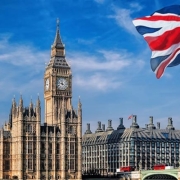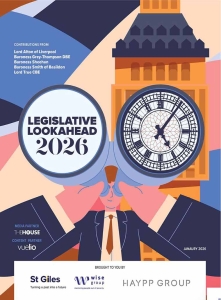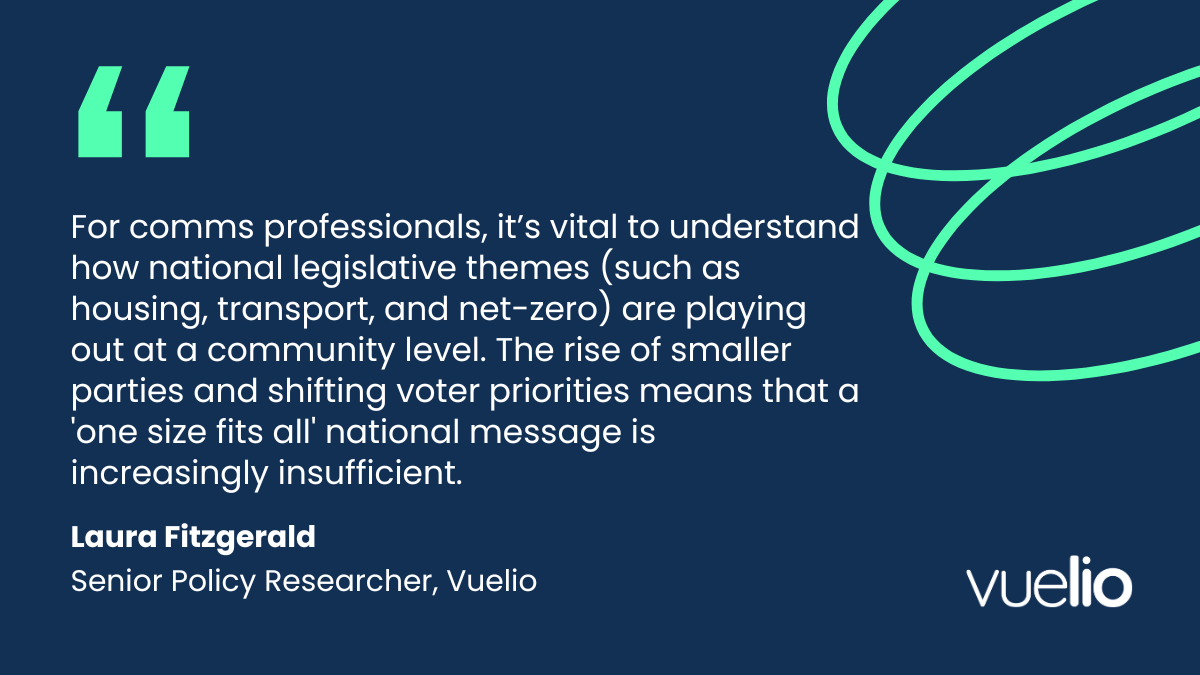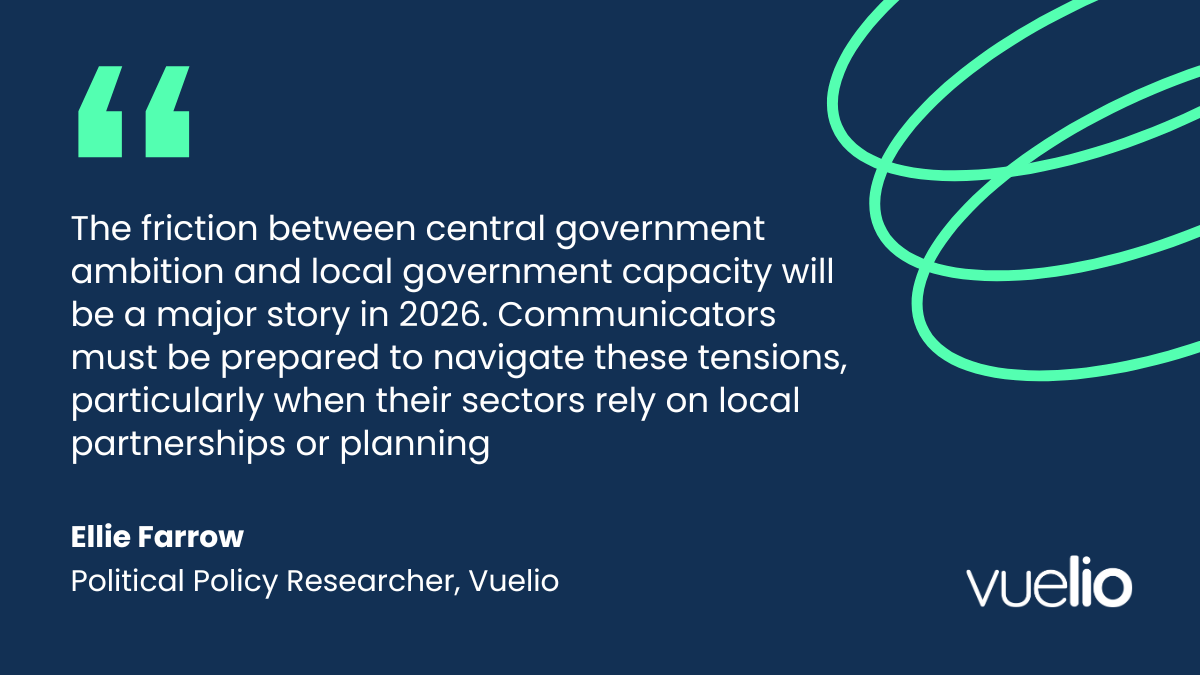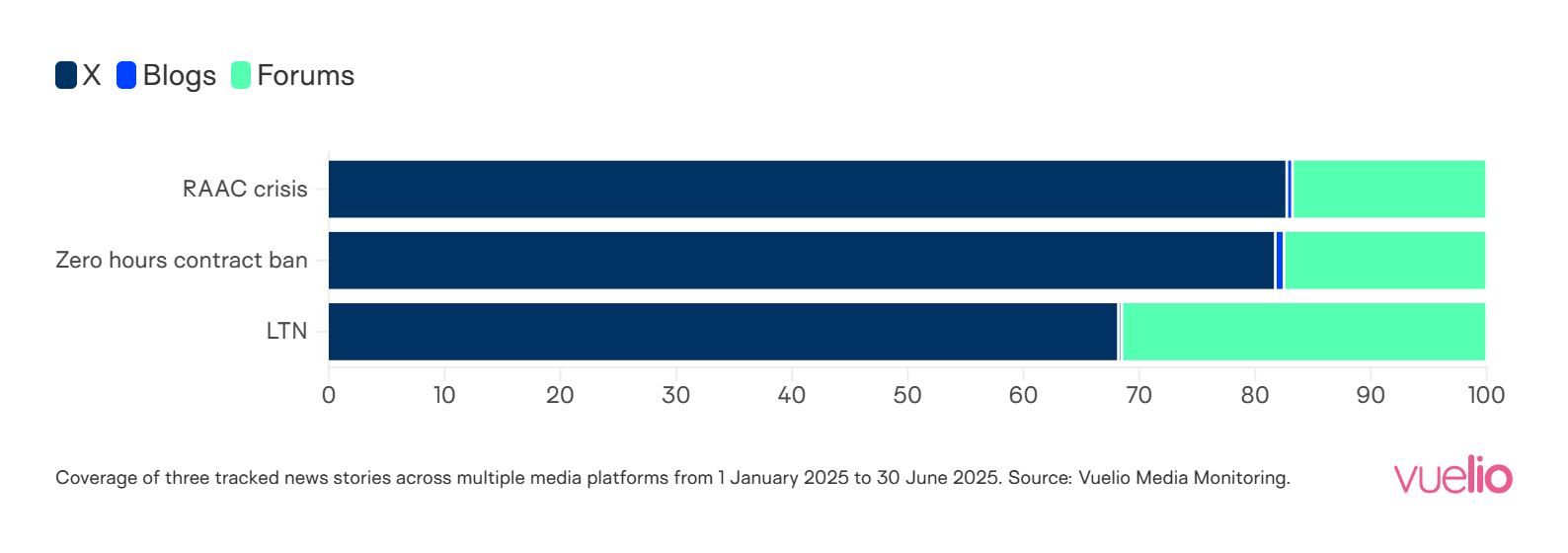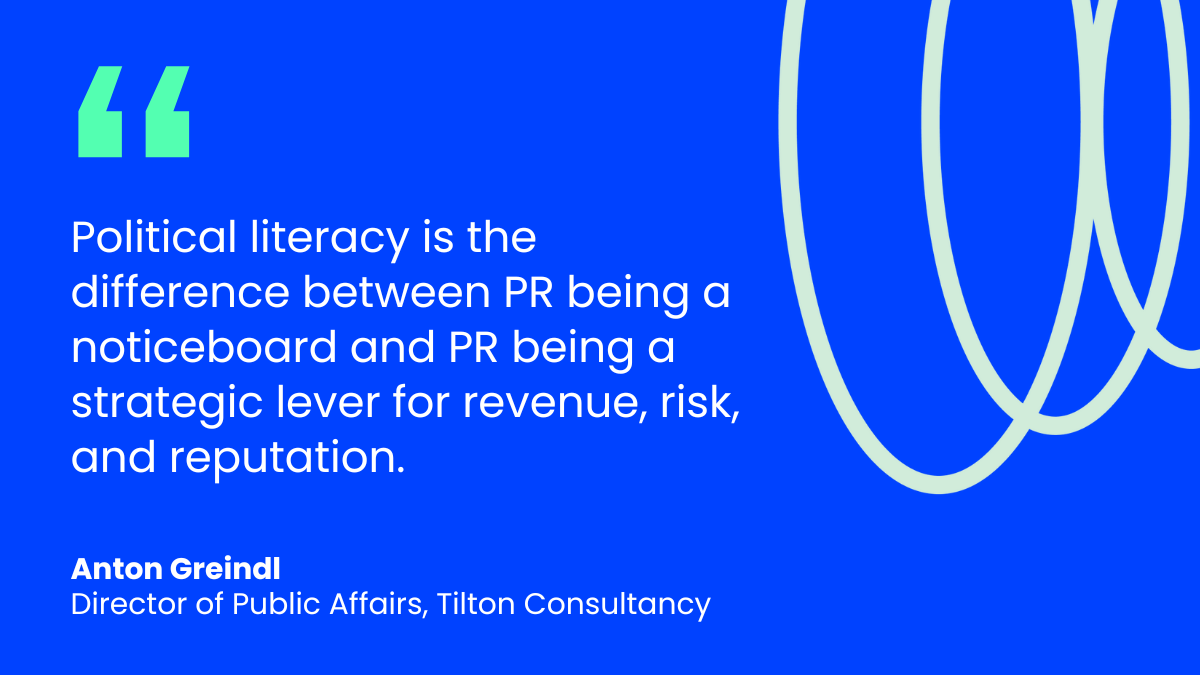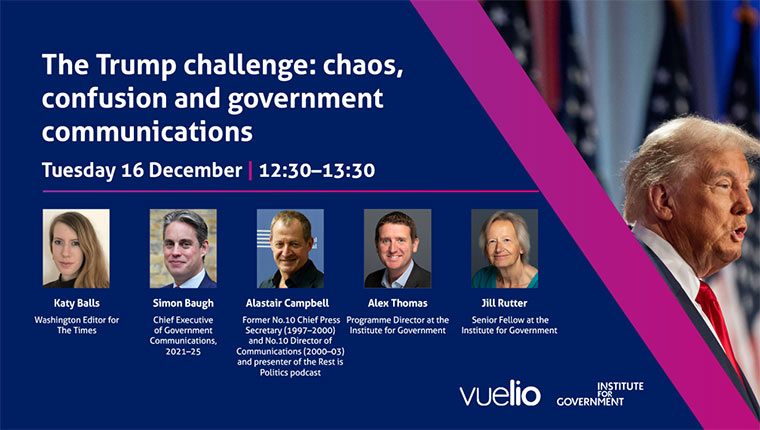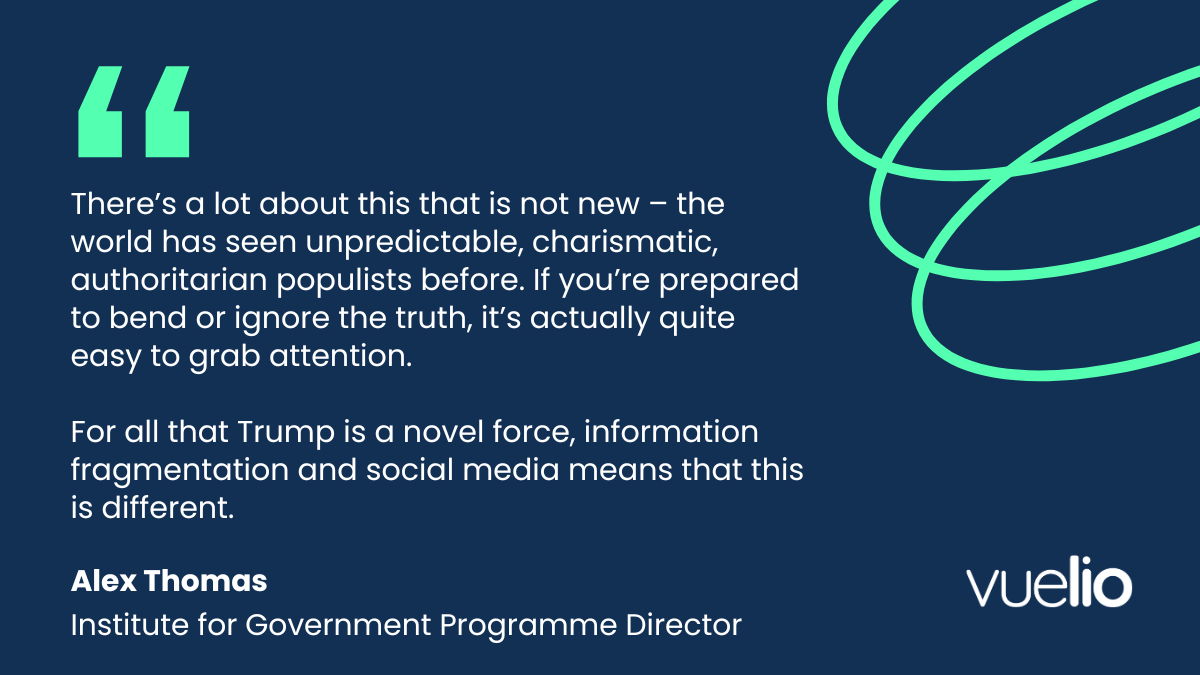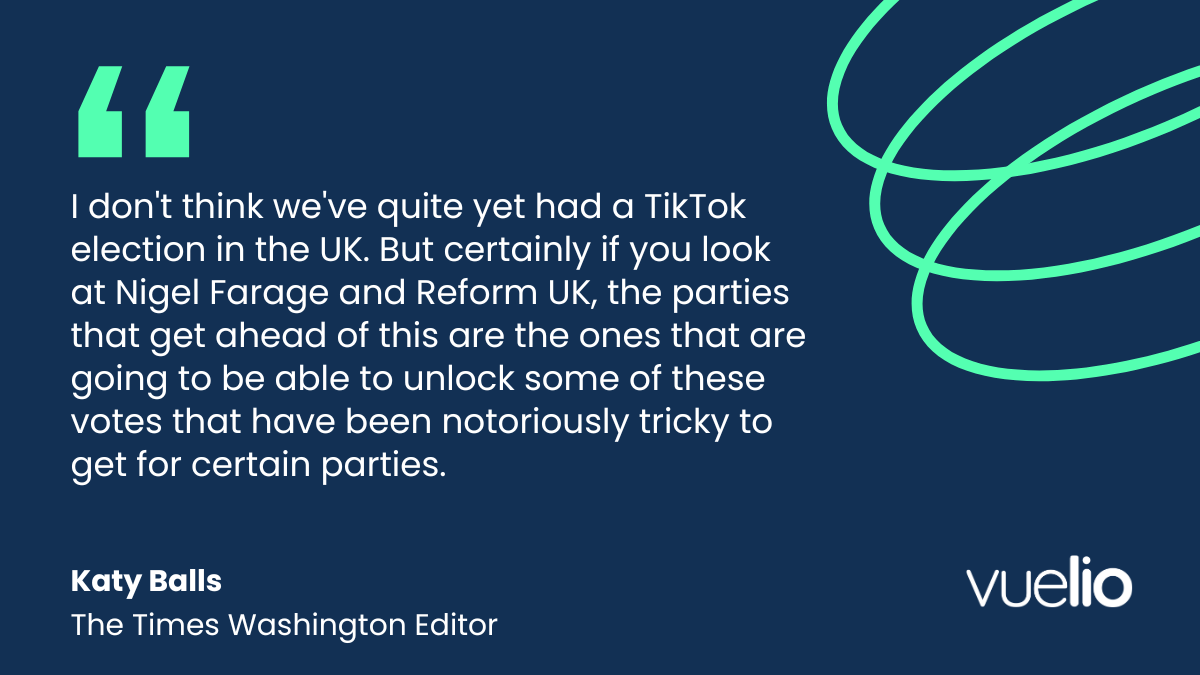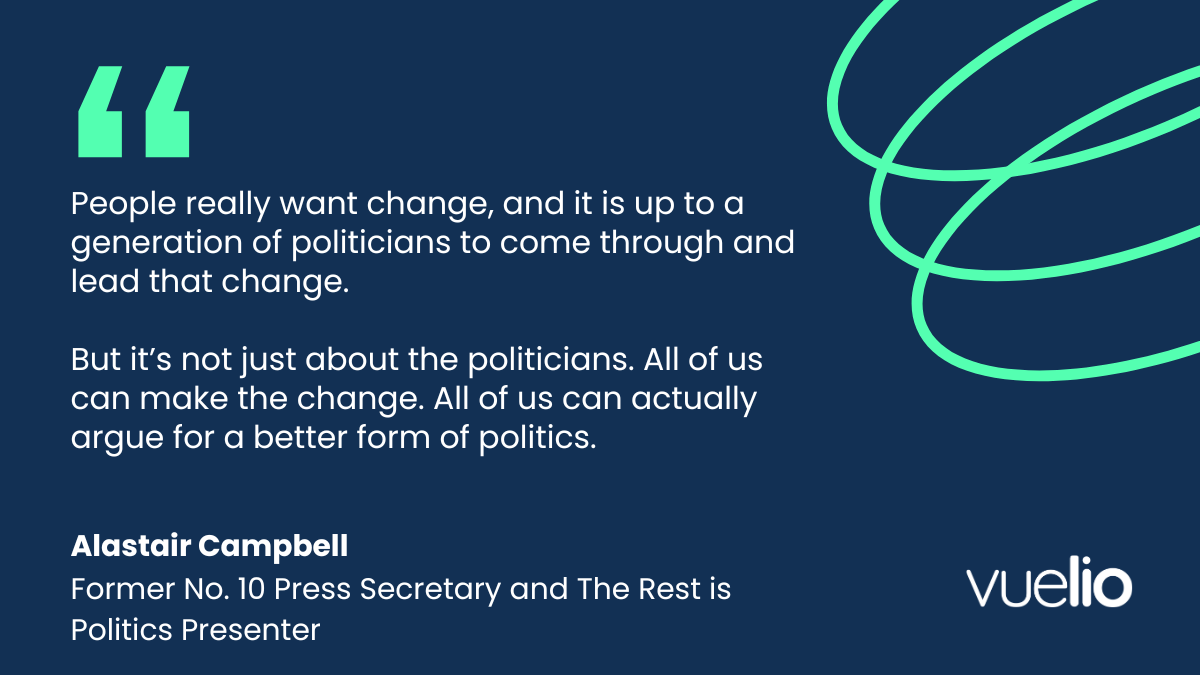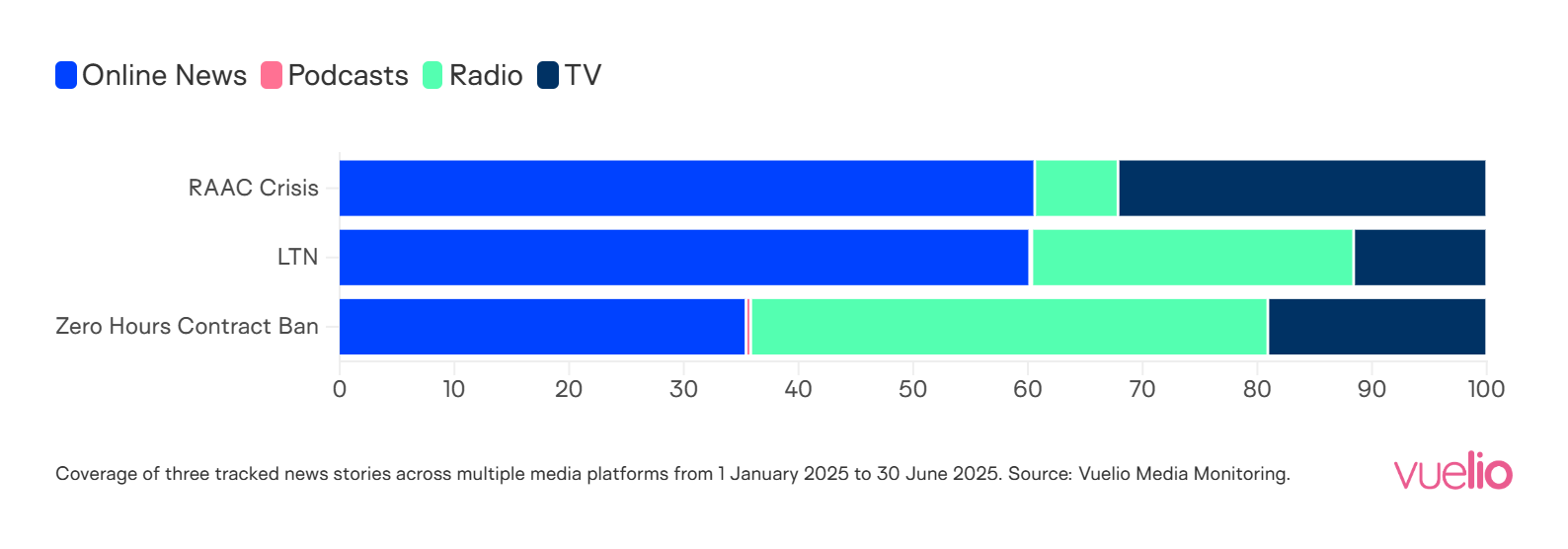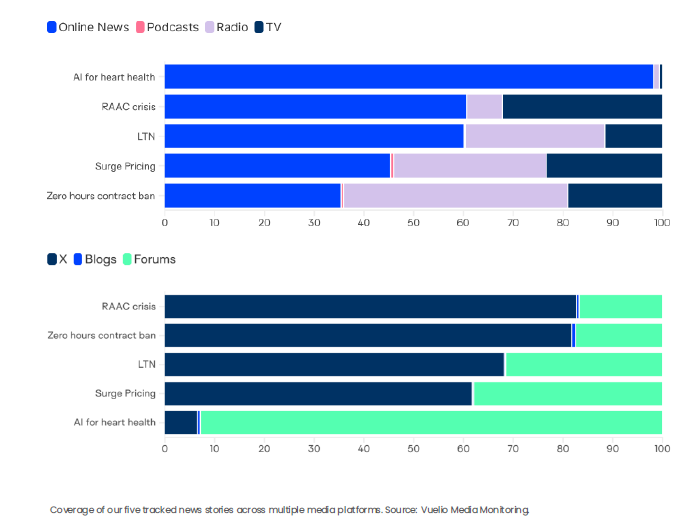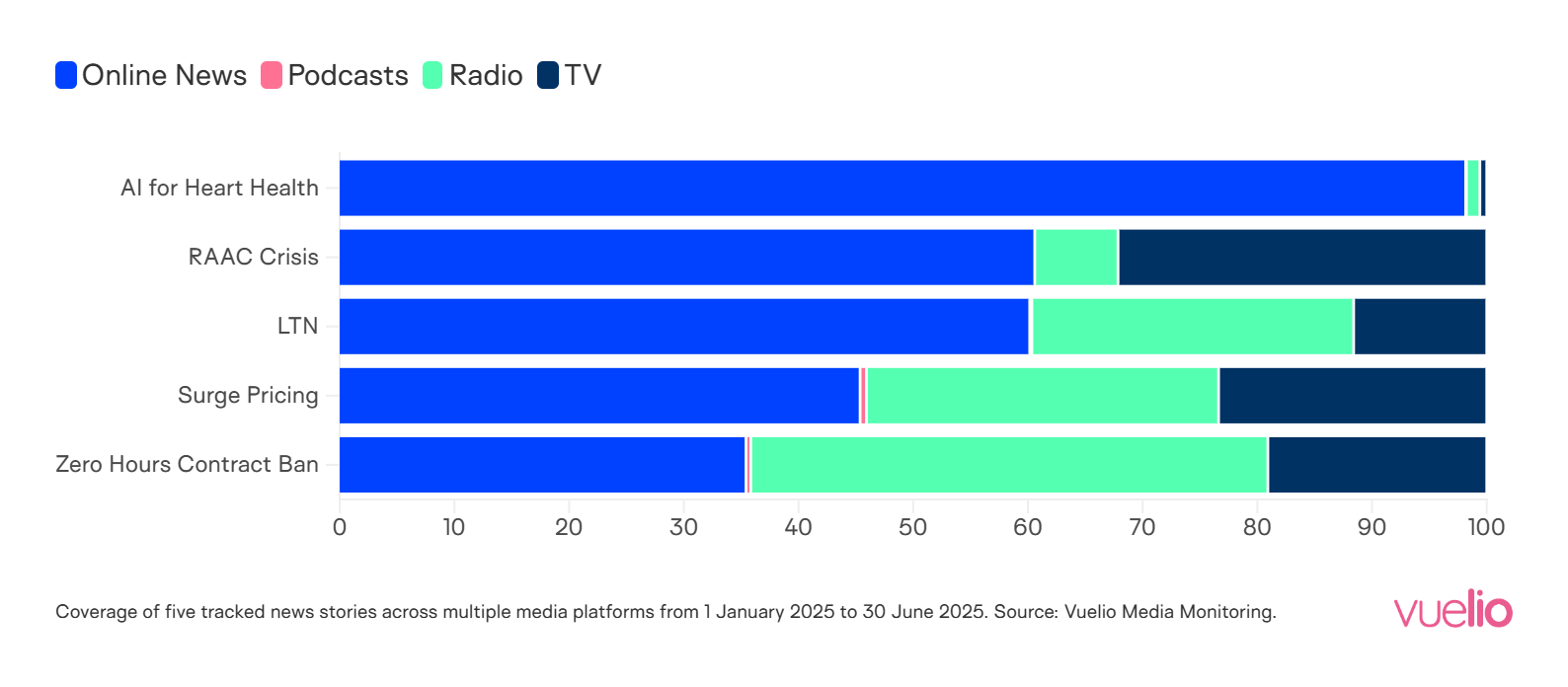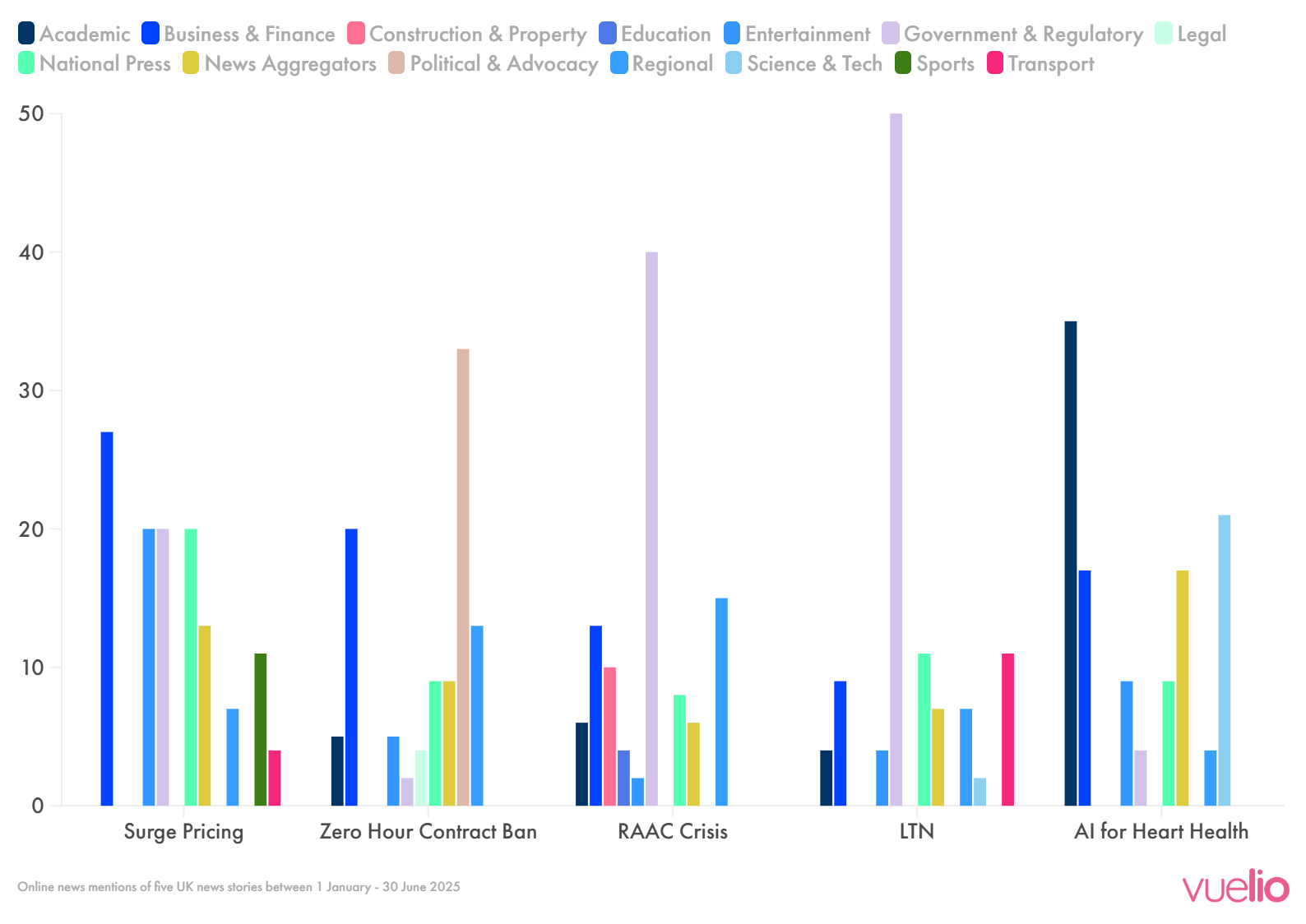2025 was a year of constant upheaval for all of the creative industries, as comms teams battled with the possibilities and realities of AI adoption; the media was irrevocably changed by the impact of LLMs and democratised content generation; and many communities across the world became increasingly siloed.
What will 2026 bring for PR and communications? Here are predictions from 24 PR industry experts already preparing for what’s ahead – take note of these PR trends for 2026…
1) Uncertainty
‘The signals for 2026 are unusually coherent.
‘Geopolitical volatility is no longer an externality; it is a daily operating condition for communication leaders. AI, meanwhile, is accelerating faster than organisational capability, widening the adoption gap and exposing the limits of shallow governance. Add to this a generational divergence in values, media behaviour and workplace expectations, and the pressure on leadership becomes structural, not cultural.
‘Traditional models such as PESO, demographic segmentation, and hierarchical messaging are breaking under the weight of distributed influence and AI-mediated discovery. High performance will depend on disciplined listening, foresight, intergenerational literacy, and a shift from output craft to organisational intelligence.’
– Stephen Waddington, co-director of Wadds Inc. and co-founder of Socially Mobile
‘For me, the biggest trend will be how PR responds to uncertainty. I suspect it will stop being treated as an exception and become the normal operating environment. Political instability, economic pressure and rapid technological change mean teams will spend less time “managing crises” and more time navigating constant change. As a result, judgement, leadership and clear communication will matter more than speed alone.’
– Andrew McLachlan, Head of Strategic Communications, Mediazoo
2) Further fragmentation of the media
‘The biggest challenge for our industry in 2026 will be working within a shrinking, more fragmented media landscape – fewer journalists, more niche outlets. It means those trusted relationships and highly targeted placements will be more valuable than ever.’
– Sarah Owen, Founder and CEO, Pumpkin PR
‘It’s already happened, but podcasts are reaching more people than ever – understanding how to promote and use the content on different platforms is savvy, economical and helps keeps organisations stay on message.’
– Gorki Duhra, PR Manager, RNIB
‘The days of relying on one or two social channels are over. With algorithms constantly changing and new platforms emerging, diversification will be key. Rather than chasing every trend, 2026 will be about choosing the right mix for your audience, from established spaces like Instagram and TikTok to the community-led platforms like Facebook or gardening forums. By broadening their digital footprint, garden brands can reach audiences where they already spend time, while reducing dependence on any single platform.’
– Holly Daulby, Managing Director, Honest Communications
‘I foresee a rise in “professional influencers”. More PR and comms pros will use digital platforms like TikTok and LinkedIn to share their insights to the wider world – not simply speaking to the industry but to the general population about key PR and comms issues. I also see the power of our algorithmic influence being something that really gains traction – how PR and Comms has the power to drive algorithmic narratives across multiple strands is an exciting thing to consider and study.’
– Ronke Lawal, PR Consultant, Ariatu Public Relations
3) Going niche
‘Sub communities of sub communities are where conversation is at its richest. With Reddit and online communities having increasing power on both AI and social chatter, PR campaigns that go super-niche and speak directly to those groups are going to fly and build a really engaged fan-base at the same time.’
– Dominique Daly, Director, Hope&Glory
4) Increased scrutiny and skepticism
‘I think agencies are going to come under scrutiny from clients about how they are using AI – clients will think they can do it themselves if you’re regularly using large language models as a starting point for content.’
– Joanne Gill, Director, Cyber Crisis Readiness & Response
‘With generative AI so widely used, all content – generated and genuine – will be viewed with caution because people are increasingly assuming that AI is behind most of what they see. A jaw-dropping photo? No way. A beautifully written poem? Probably AI. Fake products, fake reviews, fake images and videos are only going to be more common and harder to distinguish, so trust at all levels is going to be harder and harder to earn.
‘Brands need to counter this by making their products and messages more authentic in whatever ways they can. This could mean less polished promotional imagery, more behind-the-scenes realness, more personal connections and social media collaboration to give audiences more reason to trust what they have to offer. Hopefully, people will also trust the mainstream media more as a result, but they need to pull their socks up too.’
– David Sykes, Head of PR, Carrington
5) Imperfection as a mark of authenticity
‘A sharper focus and value on human authenticity. Human-created content, with its quirks, humour, and even minor flaws, is what marketing and PR are all about – because it feels relatable and real. That is what clients trust us to deliver. This deliberate embrace of “imperfect” storytelling is what will support agencies to stand out and brave this new AI era. Over adoption of AI will see client disconnect, leading to poor results and ultimately a negative impact on business for both parties.’
– Pamela Badham, Founder and CEO, Four Marketing Agency
‘PR teams who help brands to make an emotional connection with their consumers will contribute to their growth, even in tough economic conditions. Consumers don’t need polished messaging and perfect imagery, meaning PR can be low on cost providing you’re telling the right story. Whether you’re husband-and-wife distillers who have sunk all your savings into rescuing a historic water mill (Dunnet Bay Distillers) or an 85 year old dairy farmer who has embraced TikTok and become an influencer (Graham’s The Family Dairy), it’s these real, raw stories of human endeavour that connect with audiences in a sea of heavily curated content.’
– Eleanor Bradford, Director of Corporate Communications, Muckle Media Group
6) Real-time reputation recovery
‘Stakeholders will expect more real-time responses. Brands are shifting investment into scenario planning, faster cross-team alignment, and proactive issue-spotting.’
– Ruth Jones, CEO and Founder, 3THINKRS
‘We’ll also see reputation management evolve into a real-time discipline. Misinformation, rapid-cycle crises and deepfakes will require faster monitoring, shorter approval chains, and scenario planning that’s actually used – not just a ‘nice to have’ that’s filed away gathering dust.’
– Claire Crompton, Co-Founder, TAL Agency
7) The rise of GEO
‘2026 will be the year GEO, generative engine optimisation, will stop being a buzzword and become a core part of every comms strategy. As AI-driven search reshapes how people discover news, products, and brands, earned media will surge in importance again. If you aren’t landing high-quality coverage in trusted outlets, you simply won’t show up.’
– Matt Brown, CEO, W Communications
8) A clamour for case studies
‘PR professionals need to support the media by ensuring that pitches and content are highly targeted, relevant and human. More journalists are asking to interview spokespeople directly rather than relying on written responses, and there is a growing emphasis on proving the real expertise and credentials of those spokespeople.
‘The positive news is that PR teams are well placed to guide clients through this shifting landscape. It all comes back to building trust, developing clear and meaningful messaging, and demonstrating expertise across media and owned channels.’
– Claire Gamble, Managing Director, Unhooked Communications
9) Honesty
‘There’s debate in PR about whether being a “friend” to your client helps or harms growth. For us, it’s not about being a yes-person; it’s about honest counsel and integrity that runs at every level in the agency. That shared trust allows for frank conversations and leads to better outcomes.
‘Growth for me isn’t about being everywhere; it’s about being indispensable to the right people – and always keeping a step ahead on insights and opportunities.’
– Jane Pavia, Managing Director, Vista PR
10) Getting personal
‘2026 will be shaped by consumers seeking calm, comfort and control.
‘For all the excitement around AI, consumers ultimately want something profoundly human: brands that respect their time, reduce stress and help them make better choices. The mantra for 2026? Do less that is fast, do more that is meaningful – and let authentic intelligence guide you.’
– Anthony Tattum, CMO, Leopard Co
‘With so much content being created by AI and fake case studies and news filling up journalists’ inboxes, PRs will have to get even more personal and creative in landing their stories. Journalists will actively seek out those PRs they can trust to give them legit news, which means building relationships will matter more than ever. If any organisation thinks they will be able to produce content with AI, think again. 2026 will be all about authentic and interesting stories – anything and everything to put us further away from typical AI cliches. Yes, it will be challenging, but the challenges will help differentiate between magic and artibots.’
– Dinara Omarova, director, Peach Perfect PR
‘Smarter-than-ever targeting, continuing to focus on building strong relationships, tighter angles offering exclusivity and hyper-focused on the platform, and adding genuine value in the form of useful assets, data, access, or experts for example tailored to the platform – they will win in 2026 and beyond. The days of spray and pray media ‘targeting’ are gone and relationship-first now beats volume every time.’
– Gary Jenkins, MD, No Brainer
11) Flexibility
‘In 2026, the PR and communications industry will need to become far more value-driven, agile and purpose-led. Clients are increasingly questioning what they’re actually paying for, and are no longer willing to overlook hefty agency fees that largely cover overheads such as office space and infrastructure rather than talent, strategy or delivery.
‘There’s already been a clear shift towards smaller, more agile agencies winning major briefs – not because they’re cheaper, but because they’re proving they can deliver the same (or better) results with sharp thinking and leaner operations.
‘We’ll see a move away from traditional, rigid agency structures and towards flexible agency models that unite specialist talent networks, rather than expecting in-house or agency teams to be “jacks of all trades.” By bringing in the right experts for each project instead of relying on one-size-fits-all roles, agencies can deliver higher-quality work, remain more agile, and focus on results and impact rather than office presence or hierarchy.
‘It also has a bigger impact on the industry as a whole. This shift enables more experienced professionals – particularly parents, carers, and those navigating health or life challenges – to stay in the workforce and continue contributing their expertise without being forced out by outdated agency expectations.’
– Charlotte Dovey, Founder, Quince Creative Communications
12) Press releases (yes, really)… but with a twist
‘PR teams have always built stories for human audiences. In 2026, they’ll build them with the understanding that AI is becoming an early interpreter of every brand, business, and organisation. This is where the press release will step back into the spotlight. Journalists rely on it as a verified source of truth, and AI is beginning to treat it the same way. When teams don’t supply clear, authoritative information, models generate their own version, which travels fast and shapes perception long before anyone sees a headline. The industry needs to be ready for that shift.’
– Lizi Sprargue, Co-Founder, Songue PR
‘My biggest prediction is that the press release will no longer be the centrepiece of communications – but rather a supporting document in a much larger ecosystem of storytelling, cultural engagement, and credibility-building. Successful PR will shift from announcement to storytelling. And what will define PR in 2026 is speed, narrative, and trust.’
– Sheridan Okey, Head of PR, Tribera
13) Virtual immersion
‘Immersive, hybrid (phygital) storytelling & experiences. The divide between “digital campaign” and “real-world activation” will shrink further. More brands will explore virtual press events, AR/VR product experiences, interactive storytelling, delivering beauty not just through words or visuals, but through experiential, sensory engagement.
‘For beauty brands especially, this opens doors to try-at-home virtual make-up filters, immersive product launches, experiential retail + digital storytelling combos, and more.’
– Patrizia Galeota, PR Specialist & Podcast Host of PR LIKE A BOSS!
14) And AI, of course… but with ethics
‘We won’t be able to escape the impact of AI and how it can help our work. I just don’t want to see any PR disasters caused by its misuse! Reputation really does include AI ethics.’
– Stephanie Mullins-Wiles, Strategic Communications, Marketing and PR, BlueSky Education
For more on navigating the media ecosystem in 2026 and beyond, check out our Vuelio report ‘How news travels in today’s fragmented media environment’.



